Iran’s Intel Minister Warns Against Penning Critical Open Letters
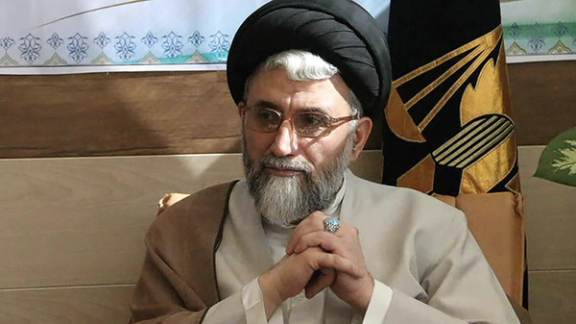
Iran’s Intelligence Minister Esmail Khatib has warned critics of government against writing statements and open letters to criticize the current situation in the country.

Iran’s Intelligence Minister Esmail Khatib has warned critics of government against writing statements and open letters to criticize the current situation in the country.
Khatib made the remarks on Thursday as the Islamic Republic’s security apparatus is increasing pressure on the signatories of a statement against Iran’s crackdown on popular protests, demanding they rescind their signatures.
Informed sources told Iran International Wednesday, August 17, that the Intelligence Ministry as well as the security division of the country’s Ministry of Culture and Islamic Guidance have threatened more than 100 film industry figures to withdraw their signatures from a May statement titled “Lay down the gun”.
Khatib blamed the United Sates for internal opposition, saying the US was forced to leave the region following humiliation and defeat and their conspiracies were thwarted, and now “the enemy’s hopes in some domestic seditionists and statement writers are doomed to failure.”
The statement by filmmakers had called on military and security forces who “have become tools for cracking down on the people,” not to suppress protesters during popular demonstrations in May.
According to reports, under the threat of security forces, about 15 people have so far withdrawn their signatures from the statement.
Iran International’s sources also said that 10 documentary makers have been informed that they are banned from leaving the country and that a list of artists who are banned from working will be announced next week.
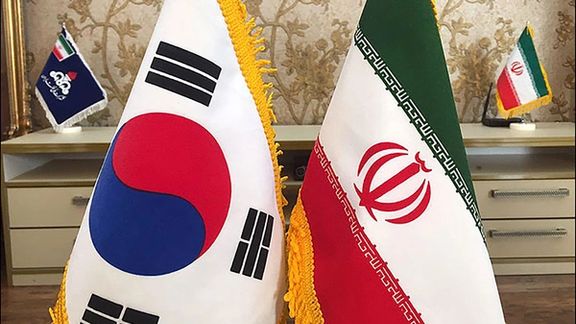
South Korea is discussing with top officials from the United States and the European Union the possible restoration of the 2015 Iran nuclear deal, which may lead to unfreezing of Tehran’s assets in Seoul.
According to Yonhap, South Korea's vice foreign minister Cho Hyun-dong held back-to-back separate phone calls Friday with US special envoy for Iran Robert Malley and EU coordinator Enrique Mora to share the latest progress in negotiations to revive the JCPOA nuclear accord.
During the phone talks, Cho reaffirmed Seoul's support for restoring the agreement and expressed hope that a deal could help resolve South Korea's pending issues related to Iran.
Bilateral relations between Seoul and Teheran remain frayed after two South Korean banks locked $7-9 billion of Iranian funds owed for oil imports because of US banking sanctions, which were reimposed after former President Donald Trump in 2018 withdrew from the deal.
Iran, which sits on the world's fourth-largest oil reserves, was a key oil supplier to South Korea, and a main importer of goods such as industrial equipment, household appliances and vehicle parts.
Seoul stopped purchasing Iranian oil in May 2019 due to sanctions that banned the Islamic republic's oil exports.
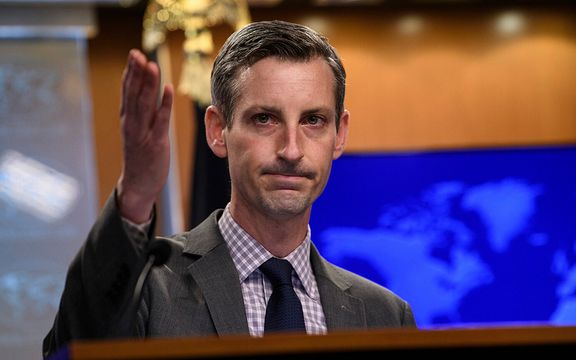
US State Department Spokesperson Ned Price says the United States and Israel have a tactical difference over the revival of Iran’s 2015 nuclear deal – or the JCPOA.
In response to a question about a report that the EU-proposed text of the agreement goes beyond the redlines of the Biden administration, Price said on Thursday that “it is no question that we have tactical differences with our Israeli partners when it comes to this question, the JCPOA. There is also no question that when it comes to the strategic objective, the overarching objective, we see entirely eye to eye.” Axios had reported that the Israeli prime minister sent a message to the White House saying the Biden administration should walk away from the deal.
“We are aligned. We are aligned in the firm belief that Iran must never be allowed to acquire or possess a nuclear weapon,” he said, noting that “We happen to believe that diplomacy... centered around a potential mutual return to compliance with the JCPOA is the most effective means by which... to once again see to it that Iran is subject to permanent and verifiable limits on its nuclear program as well as to the most stringent verification and monitoring regime ever negotiated.”
Price reiterated that if Tehran and Washington can return to compliance with the JCPOA, Iran will not be in a position to acquire a nuclear weapon, adding that US and Israel “see eye to eye on this overarching priority of ensuring that Iran can never acquire a nuclear weapon.”
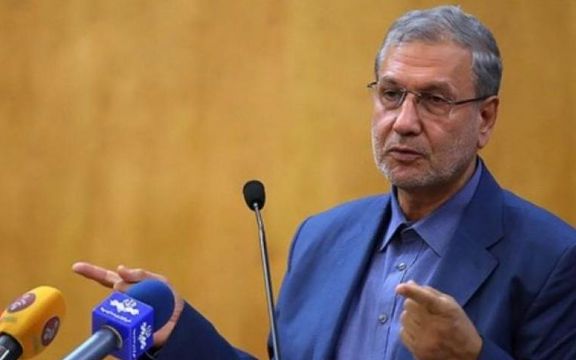
Iran's conservatives appear to have split into two groups, one welcoming a new nuclear deal and the other arguing it cannot be a magic wand for Iran's economy.
Conservative Foreign Policy Expert Jalal Khoshchehreh said in an interview on Thursday that hardline conservatives in Iran are preparing to blame whatever falls short of their demsands on Iran's previous government if the new deal is different from what President Hassan Rouhani's government had achieved in its negotiations with the West between April and June 2021.
Khoshchehreh explained hardline, or in his word, radical conservatives are pretty much sure that a deal is being made with the United States. On Wednesday, lawmakers at the Iranian parliament said that they had been briefed by top security, nuclear and foreign policy officials who told them that major hurdles on the way of an agreement have been removed and the United is weighing Iran's final response.
The analyst cautioned however that radical conservatives are getting ahead of themselves and setting the stage for the post-agreement developments, a situation in which both Tehran and Washington have made compromises.
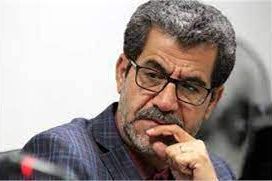
Meanwhile, the former head of the Iranian parliament's Foreign Policy and National Security Committee Heshmatollah Falahatpisheh described the differences among various Iranian conservatives over a new deal as a sham fight.
Referring to tough positions taken by some hardliner conservatives such as the editor of hardline daily Kayhan, Hossein Shariatmadari, who said on Thursday there no US guarantee is trustworthy, or conservative politician Mansour Haghighatpour, who has spoken about disciplining the United States, Falahatpisheh said that "Obstructionism has already started against a new deal. Had an agreement been reached earlier, it would have been working by now. Nonetheless, everyone in Iran and America should welcome any move toward reducing tensions no matter when this move starts."
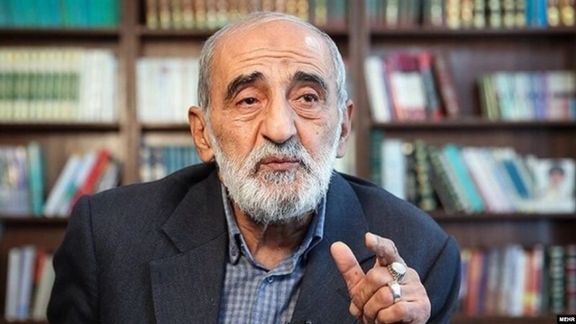
He said that "Iran's response indicates Tehran's acceptance of [EU’s Josep] Borrell's proposal. Tehran only needs to make sure that Washington's promises about [lifting] the sanctions are spelled out in the text of the agreement."
In another development, former Iranian government spokesman Ali Rabiei said in a commentary published by reformist daily Etemad that "It is wrong to believe signing an agreement will improve everything in Iran. This is a trap we should not fall in. An agreement simply removes the barrier on the way of moving ahead. But going forward needs prudent policymaking and efficiency."
He acknowledged that everybody in Iran seems to be happy about reaching an agreement as they think the country's has moved in the right direction. Rabiei added that as a result, the former opponents and supporters of a deal have reached a common understanding. But still, they will have two different approaches in the post-agreement situation. One group will limit the outcome to selling more oil and getting more money to survive and improve the current situation. However, the right approach is using the agreement as a first step to end Iran’s isolation from the world economy and to reconstruct and expand the country's infrastructure by investing in development.
The former official then opined that "the confrontation between these two approaches is the first challenge Iran will face in the post-agreement situation. Meanwhile, officials should prepare the country's banking system for the new reality…pave the way for foreign investment and strengthen the private sector."
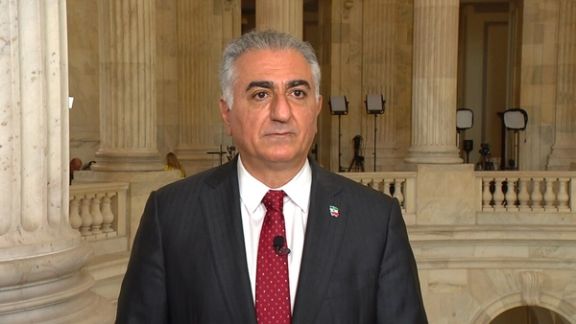
Iran's exiled Prince Reza Pahlavi says the way Western powers interact with the Islamic Republic has emboldened it to continue its repressive measures with greater immunity.
In a Wall Street Journal opinion piece, Pahlavi noted that the regime of Iran is the main responsible party for the attack on writer Salman Rushdie in New York last week, adding that Iran’s Ayatollah Ruhollah Khomeini invoked God to “call on all valiant Muslims wherever they may be in the world to kill [Mr. Rushdie] without delay.”
“While the Islamist regime in my country and the assailant it appears to have inspired bear responsibility for this attack, they were enabled by Western policy makers,” he wrote.
In the late 1980s and early 1990s, the United Kingdom and Germany cut relations with Iran, sending a strong message, Pahlavi said.
“This forced the Islamic Republic to keep a low profile. British and German citizens were largely safe from its machinations. The strong response from the West didn’t change Tehran’s destructive desires, but it did contain them,” he said, highlighting that now it appears “Western powers on both sides of the Atlantic have forgotten the lessons that kept their citizens secure as well as the dissidents to whom they offered a haven.”
He said although the Islamic Republic has not changed its revolutionary principle, it is now “accepted at glitzy panels at international forums and attend headline-grabbing negotiations at Europe’s chicest hotels.” That acceptance has afforded the regime unprecedented and undeserved moral equivalency with the West and has fostered confidence among Tehran’s radical followers who see the regime as a source of revolutionary inspiration to radical action, Pahlavi said.
The negotiations with Washington over a new nuclear deal in Vienna have shown “Khamenei and his criminal cabal” that they can effectively get away with murder, he said.
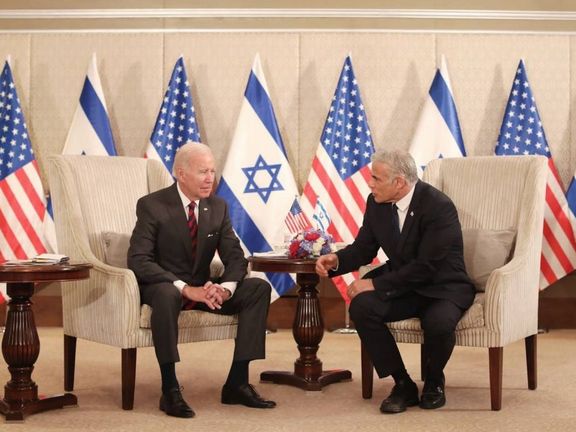
Senior Israeli officials have called on US and European leaders to leave talks with Iran on returning to the 2015 nuclear deal.
While Jerusalem believes Iran is close to inking an agreement with world powers, and has started preparing for the announcement of the deal, top Israeli officials said on Thursday that the time has come for Western powers to walk away from talks.
“The Europeans sent Iran a final offer, which doesn’t even meet the demands that the Americans committed to, and established that this offer was ‘take it or leave it,'” said a senior Israeli official at the highest level of decision-making on Thursday, adding that “Iran turned down the offer, and the time has come to get up and walk away.”
“Anything else sends a strong message of weakness,” the official added.
The unnamed senior official, in a briefing to Israeli journalists, also said that the world must now discuss what must be done in order to prevent Iran from abtaining a nuclear weapon.
Earlier on Thursday, Prime Minister Yair Lapid expressed this message in his phone call with German Chancellor Olaf Scholz. He also made the case to US Ambassador Tom Nides, and Florida congressman Ted Deutch, the chairman of the House Subcommittee on the Middle East, North Africa and Global Counterterrorism.
Israel’s National Security Adviser Eyal Hulata will head to Washington, DC, next week to conduct a series of meetings with US officials on the Iran nuclear program.